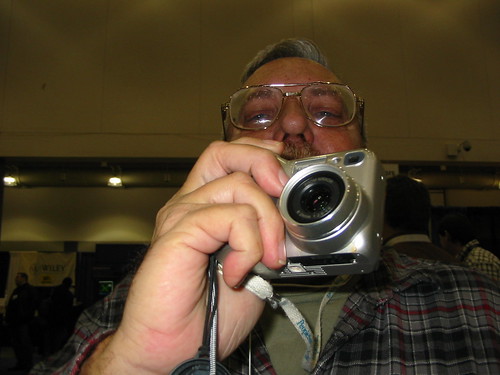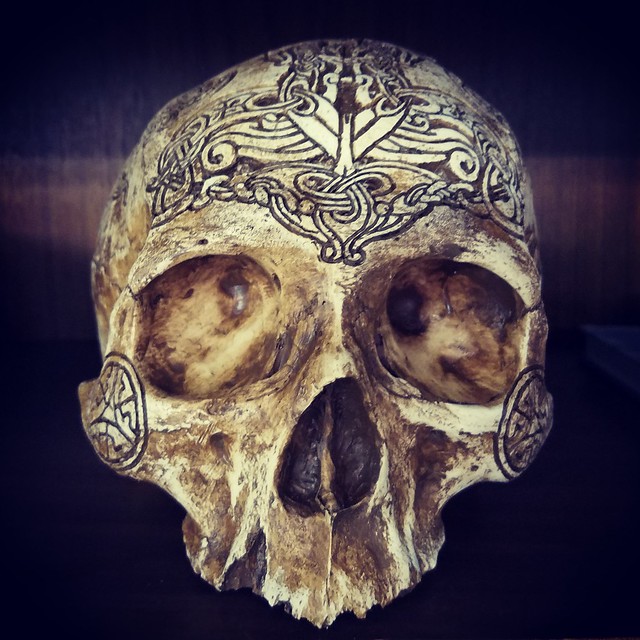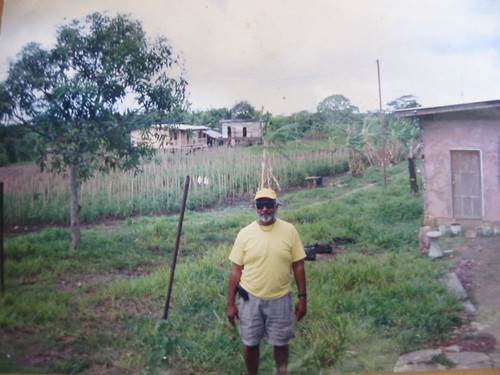 This is more of something written for my nieces and siblings in the hope that they get out of it what I wish them to know, or what they need, or both.
This is more of something written for my nieces and siblings in the hope that they get out of it what I wish them to know, or what they need, or both.
A message from my sister: “Call me.”
She was waiting outside our mother’s place, waiting for the medical examiner. The maintenance man had found the corporeal remnants, the footprint of a once living being. Of our mother.
I’d been expecting this call, much as I had expected the message from a less than articulate email from a cousin in 2005 who told me when my father had passed: “Aye – the old man kicked the bucket.”
My sister is better at this, she gives me the facts. She’s in shock, I’m in shock. She and I had broached the topic more than once but never explored it fully; she’d probably done the same with our brother. The clutch in my mind disengages, spinning free for a few seconds – that moment when everything disengages and a system reset is necessary.
The clutch in my mind engages.
I’m in Trinidad and Tobago. They’re in Wisconsin- equidistant from major hubs, almost, a meeting place of roads that is starved economically. It’s winter. It’s cold there. To get there I will be cold on the road.
The reset is over, I think, “I’ll need a jacket.”
I follow that thread in my mind, and it drags me to needing foreign exchange – U.S. dollars, a challenge in a twin island Republic once proud and rich but whose governments over the years have lead to the ropes of destitution which has lead to the foreign exchange problem. The strategist in me kicks himself for overlooking this one particular instance for a few microseconds. Plans and alternates pull together quickly, as always. It’s a Thursday. Friday will be a lost cause. Traveling on the weekend is a bad idea; it’s financially inefficient. Traveling during the week will have to be what happens if it does.
I’m not sure exactly what I said to my sister at that point except a weak platitude about her strength and that I’d see about getting up there. Her mind is not in the best of states either, but she is strong and practical. Resilient.
We have no dates. I don’t want to hold things up. She needs to plan and move things forward, and I don’t want to be the dangling detail that holds things up – I get a hold of my sister and tell her the same. Practically speaking, if there is a choice to be made, I will defray costs more if I’m absent. I’m still planning to get there, but the stars have to align a certain way for this to happen.
I call again the next day and speak to my niece; a resilient woman in her own right. They are going through my mother’s apartment. She has found the notes for my mother’s funeral, and in it she reads, “If Taran manages to show up, let him take what he wants.”
Even from the grave. How unprose of her. I laugh about it and I realize my niece won’t understand my laughter; the relationship I had with my mother was plagued by such things – it was in part a definition of our relationship, a constant that she held on to the end – or at least when she wrote that. And she, who was someone who hid things everywhere left the funeral notes where they could be readily found – she was like that too, like all of us, showing the world what she wanted it to see, hiding the rest just below the surface. She erupted now and then with it. It was who she was.
It’s a full day later – I’m still not sure if I’m getting up there. The dilemma of foreign exchange has left me waiting on things here and there; thinking of this and that. One cousin came by and did what I would have done in his place – offered any assistance possible. An aunt called and gave her, “you’re strong” (code for “I don’t know how to deal with you, I don’t understand you and really never have. There There”). Everyone’s different, showing their emotional strengths and weaknesses at such times as they reflect them into what they have been given on such occasions. The dilemma of hedgehogs, revisited.
The relationship my mother and I had was different. It was something that my nieces and sister, at least, accepted on the surface. People who knew us both just knew it was a difficult thing for them because it was a different thing for us. She had her thoughts and feelings on the matter, I had my thoughts and feelings, and between us there was dissonance with a history of circumstance that neither one of us was at fault for.
I’ll get into that. Yet in the broad strokes, who doesn’t love their mother, who doesn’t want to be there? Who doesn’t feel a certain numbness and feel a little guilt for it as emotions below the surface try to figure out which way is up – bubbling in their own directions until they find the gravity they fight against so that they may reach the surface?
My mother was a writer – she’d happily tell you that, and if you stood still long enough she’d read you poetry that she’d written, a bit of herself she had learned to allow to the surface more readily. It’s what we do, I suppose. She was convinced my writing was a gift from her. Both sides of the family have their thoughts on that, where they are quick to point out what writers there are on either side of the family. To be an engineer was kind of expected, to be a writer was an uncomfortable thing for everyone. It still is; as Stephen King wrote, writers are not parts of ‘polite society’. We can be cavalier with those around us, tossing identifiable bits and pieces of others close to us in what we write only because we tend to write from who we are, and who we are is a complicated business of relationships and unspokens that can paralyze us.
There. I solved writer’s block for everyone. You can get back to writing. Just find those unspokens and get them out.
That I can be creative and logical makes me an alien in both camps. For my father, he could never understand I could do both. My mother could, yet could never truly understand engineering beyond the magical results, good and bad. We see that in others that we see in ourselves, tossing in smoke and mirrors of questionable relevance that give us our own flavor of the world.
Where my father was an angry vanilla, my mother was a butter and pecan with bubblegum and a sugared cone. When you figure out what that means, let me know.
But let us push bravely on to the context of the relationship with my mother, and who she was.
Unprose
We were more distant than we wanted to be but closer than others wanted us to be. We were pulled apart from circumstances beyond our control. There will be opinions on this by all manner of people who were not involved; they were not involved and their opinions do not matter.
There are many ways to see someone. A woman can be a mother, daughter, sister, cousin, friend… and that’s the way the relationship is defined in a social agreement. A mutual understanding. And so, when they pass away, these people share stories about them with others and the net result is that they see the person in a new light, or an old light revisited.
With my mother and I, there was the period until I was 9. It wasn’t as normal as anyone might think – a mixed marriage in the 1970s, a child born in 1971 to follow two other siblings my mother had in her previous marriage. An East Indian father who would do anything for his own father and mother, later to sacrifice that on an altar of his own life. His story is told on this site in bits and pieces already, it’s not his moment – but from urban Milwaukee where we somehow fit in to the suburban Ohio where there was a noticeable effort to try to fit in, where I encountered racism for the first time through a baseball bat. People like to talk about racism a lot these days, few have experienced it – the confusion it can generate in a boy.
And I knew things were a little wrong. My father was uncomfortable, my mother was unaware. She was to remain blissfully unaware of things at times throughout the years. I was a latchkey kid, I had been for years. Her first husband had died, and I magically got an older brother and a sister. I had not asked for them, they had not asked for me, sibling dynamics ensued on the canvases we already had. I cannot speak for them, but I was confused and tried to make the best of things. Later, when I was older, I would understand their perspectives better. They had lost their father, were uprooted from the family they knew, and… suddenly there.
Meanwhile, my paternal grandfather died, and my father decided to return to Trinidad and Tobago to be a part of the family business – a complicated story in itself.
I was asked, both mother and father there, whether I would like to move to Trinidad. I was 8 or 9, asked a question that seemed simple enough on the surface, and said, “OK”. After all, I could tell that was the answer they wanted, I could tell I had given them the answer they wanted – something I confused with the ‘right’ answer. And so, with a long roadtrip, I went to Trinidad and Tobago, to a culture alien to me, to wait for my parents to arrive. What would happen to my brother and sister was unclear to me, and honestly at that age I hadn’t thought about it. In retrospect, that maybe should have bothered me – but I was overwhelmed by the adventure, exploration, seeing things and understanding them.
Fast forward about a year, and my father shows up. He tells me my mother will be coming. Time passes, a few more months. “She’s not coming.” I’d adapted to the culture but never really fit – in my years, I never truly fit anywhere – so I made my own place, had my own misadventures and even forgot what my mother looked like in a few years. I could not write that when my mother was alive; it would have broken her heart further.
Of course, I rebelled. I made up a picture of her and hung it up on an inside door of my room, writing “Mom” quite large under it. They’d made mistakes; they had the omissions, they had the sticks, but they could not figure out what the carrots were. I was unlike.
And at that point, they figured out it wasn’t going away and that I would not forget her completely. Suddenly, pictures became available. And that broke the entire infrastructure built on the foundation of me forgetting and everyone doing as they wished. It was an ugly time made uglier by the dynamics within my father’s side of the family.
There is much I did not tell her out of kindness, there were white lies mixed in to keep her from her sadness. She had a deep sadness already that would erupt now and then and cascade across the people around her, a tsunami that demanded attention. Her happiness was the same way.
I was busy, inundated, and I would find out decades later that letters and pictures had been withheld. That letters I thought sent were never sent by my grandmother. Notes between my grandmother and father came into my hands once the keeper of the secrets, an Uncle, took ill – the conspiracy for me to forget my mother writ large, the manipulations, the subtlety something I did not think any of them capable of admitted. They meant well, I suppose – but in doing all of this, they created a chasm between my mother and I.
Certainly, some of her own decisions affected the outcomes in all of this, but she was faced with hard decisions all round – and she never stopped trying. The letters I found decades later written to me that I had never received would explain gaps to me, but I never told her all of that. I gained an understanding, an understanding that she couldn’t get – partly because I couldn’t share it without hurting her more deeply than she had already been hurt. She would never understand how much of my silence and firmness at times was done for her own benefit, out of love, and she was smart enough to know I was holding things back – but instead, I expect I looked like a reminder of my father to her, though she knew I could communicate better – and was frustrated by my decision not to.
Yet after this, we would read poetry together at a few different places. We would work at the same company, and she would drive me as crazy as I would drive her – her trying to bridge to a 9 year old long gone while a young man fought for relevancy and identity in a large corporation. It was clear that I could not be what she wanted of me to me and not to her. My father’s illness made a comma there, with me returning to Trinidad and Tobago to try to help that particular hedgehog.
During that time, I would find out that she left the apartment I had arranged for her – that the financial support I gave for her to get her degree never paid off for her. She claimed agism, and I saw that as only part of the problem – she was unabashedly herself, and did not conform well to corporate culture (I am similar, just as my father, but dance on the line more than not). I was to find out that she lived in her car for a while – not the one I made the downpayment on – the shiny red Isuzu Impulse that she managed to hit in the garage a few times – but a station wagon I told her not to buy, but she did anyway.
She eventually got a handicapped sticker, moved into a place in St. Petersburg, and then moved off to Wisconsin to be closer to my sister and her daughters. Pragmatic me advised her against it, but I was once again a voice in the wilderness. As it happens, her decision worked out for her – connections with her granddaughters, my sister… how could I judge the value in those things, I who had grown up without them? She was right to move. I would tell her so.
Our relationship evolved after that, in Wisconsin, yet some things got better and some things could potentially grow worse between us. Her life was a contrast of rainbows and deep storm, sometimes flickering too fast for me to keep up with. Her cynicism and anger sometimes, even when directed at me, made me laugh inwardly as I saw myself and where I got it from. Her bubbling enthusiasm at times could be abrasive, but her indomitable spirit had taken her through challenges long before I was born and since. She may not have realized that connection we had, she may have – if she did it was a mutual secret, an unspoken. She would avoid me because of my firmness at times, pushing me away in many ways even as she wondered at my distance.
Fortunately, over coffee on many occasions I said what needed to be said. We talked about her eventual death, we talked about what she wanted to happen, that my sister would be in charge of everything. She was in her tempest of storm once while we talked about this, and she asked me what I would want from her eclectic collections – I simply looked at her and told her that I had already gotten everything of worth from her. And she smiled, an accidental truth bringing her back from her storm.
Unprosed.
I know much more than I’m writing here, but those are not my stories to tell. She was a woman of depths that many couldn’t fathom, and she could be confusing to some people at times because her depths would come out of her writing and performance, coming across as shallow at times when it was simply the cooling magma as she constantly rebuilt herself.
Her life wasn’t fair to her, people around her weren’t fair to her. We all have these issues to varying degrees. She saw her troubles, troubles that she held within in depths even she couldn’t pull out, and she wrestled with them at times as anyone who has lived a life of challenge does. She was a survivor, yes, but she drank as deeply of life as she could and encouraged others to do the same. She could be amazingly impractical and somehow manage; she could be amazingly practical and somehow not manage. She never stopped.
Her relationships with her daughter and granddaughters amazed me not just in how well they adapted to constant shifts, but in how resilient my nieces had become. My sister remains a cornerstone of that foundation, she who knew our mother best. My nieces have been women for some time, and I know that they are the stronger and better for their relationships with my mother. Maybe if they read this they might understand better this Uncle’s relationship with their grandmother and learn what they can from it, that love isn’t always as easy a thing as Disney would have us all believe, and that setting things free is just as important sometimes as staying close to them, and that setting things free sometimes means leaving them where they are.
I know we all are better because of her in ways we understand as we ourselves grow. She challenged us in her own ways to be better versions of ourselves, though sometimes she wasn’t as pleased with the results as much as the process.
We are all a little unprosed for her passing. Those who did not know her will not understand what that means, those that did know her can only understand what that means in their own context.
I sit here with this last line, unprosed.








